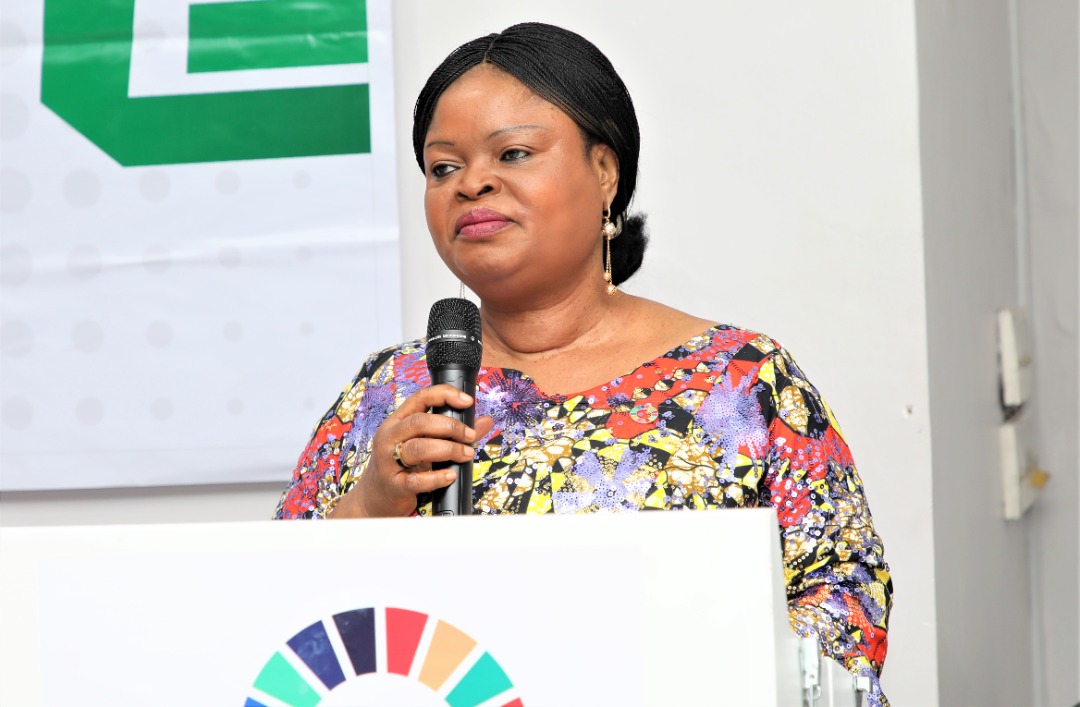Sustainable Development Goals SDGs had provision for quality healthcare as of one of it’s Goal 3, in it’s quest to address the myriads of problems that bedevilled sustainable development across developing and underdeveloped nations.
Of the 17 goals ,169 targets and 239 performance indicators of the sustainable development goals SDGs program across the globe, the demands of Goal 3 intervention that prioritized quality healthcare intervention is multi dimensional in nature with linkage to both educational, social and economic growth of the country.
These giant drive achievable since 2015 through mass investments into the primary, secondary and tertiary health institutions in Nigeria was geared towards achieving the 2030 agenda of the UN goals.
The desire of the present administration to create a robust and quality healthcare interventions through SDGs had played a complimentary roles in addressing the routine health problems and the recurring ailement as well as special areas that needed more supports.
Though, compounded by the global pandemic of COVID-19, the managers of SDGs in Nigeria under Princess Adejoke Orelope-Adefulire, SSAP-SDGS had addressed the growing menance of the health emergencies cut across the world that contained it’s disastrous and debilitating effects against the health status of Nigerians .
With grave effects on the developed countries known as super powers both in economy, social and political as well as infrastructural development, that led to job losses at home put at 33% unemployment rates, the need to combat the scourge with the interventions of SDGs in this critical sector cannot be over- emphasised.
With the critical situations that led to countries locked down for several months with series of domesticated government policies and programs against the challenges, SDGs rolled out more interventions to ensure the sustenance of quality healthcare programs in Nigeria.
The unrelenting efforts of the handlers of the SDGs program had paid off greatly in addressing not only post COVID situations in the country , but special attention to problems that needed prompt attention.
Therefore, to ensure a future that is economically sustainable, socially inclusive, environmentally resilient among many other competing variables, the 17 Goals of SDGs must be strictly observed.
This is also to assuage the growing dearth of social services and harnessed the potentials from both the public and private sectors with a view to meeting the target of the UN goals on humanitarian services.
To address the issue of quality health care wholistically and tackling it headlong, the SDGs had put in place interventions that will stand the taste of time.
Since a healthy nation remained a wealthy nation, creating an enabling environment to end poverty, safeguard our planet, guarantee peace and prosperity is germane.
Hence the SDGs had enabled and put in place medium and long term development in the health care sector with adequate plans and priorities.
This is inline with the present administration’s objectives geared towards lifting 100 Million out of poverty in the next decade of action in 2030-
With COVID pandemic, the need to reverse the architecture of SDGs and human development became sacrosanct, hence the invention of series of supports through provision of logistics which included 120 seater bus, lecture theater and seminar room to hospitals to address maternal and reduced mortality rates to the barest minimum in Nigeria.
Since SDGs Goal 3 is geared towards ensuring the welfare and well being as well as quality healthcare of the populace, subsumed in other cross cutting SDGs Goal 3, 4,1 to reduced the rate of infection and contacts of cardiovascular diseases, cancer, diabetics and chronic respiratory diseases, many centers were established across the country to mitigate the critical health conditions of Nigerians.
According to reports from the global health experts, over 5% are affected by the disease, with 15% pre-diabetes, and 6 Million testing positive to diabetics in Nigeria, the need to establish a special center known as ‘Endocrine centre’ at the University of Abuja Teaching Hospital Gwagwalada, was not out of place.
The new centre with the state of art facilities was to act in tandem with the decade of action of SDGs and with a view to realizing the 2030 agenda.
The tertiary health institutions numbering about 10 in special category consisted of 80 bed primary health centre in Lagos University Teaching Hospital, University of Ilorin Teaching Hospital, among others.
SDGs in Nigeria since 2016 , had made giant strides towards resolving critical health conditions of many Nigerians that led to the completion of (34) nos of 120 bed mother and child hospital across the country, (16) nos of ultra modern (80) beds premier health care facilities, (84) nos of primary health care centres, (4634) nos specialized hospital beds as donations to hospitals across the country.
In addition, OSSAP-SDGs has embarked on massive rehabilitation of premier healthcare facilities, complimented with supply of Intensive Care and Rural Ambulances to various hospitals across the country as part of its contributions to ensure that the mother and their children survive at birth.
In accordance with the Private Sector Advisory Group (PSAG) template on SDGs, the development partner had made an in road that had reduced maternal child and mortality ratio in collaboration with Coca cola, / Messhare international launched “the safe birth initiative”.
This initiatives had supported ten tertiary level health institutions and hospitals, as well as provision of medical equipment, technical knowledge, as well as capacity building to address health conditions.
The partnerships also brought on board supply of intensive care equipment which included rural ambulances, to various hospitals across the country.
The recent collaboration between the office or the Secretary to the Government of the Federation SGF and the SDGs that resulted in the supply and donation of seven (7) nos of emergency tricycle ambulances to the people of Hong community was part of genuine engagements between the SDGs as a public entity and private individuals to deliver on the health mandates to communities in Nigeria.
These among many other programs of SDGs in Nigeria is expected to bring health care facilities at the peck and call of ordinary Nigerians.
Written by ABUBAKAR YUSUF, All inquiries to yus.abubakar3@gmail.com.





